Question ID: 1000-10993-1-2-3-4
Recipe Description
I love projects that are simple so this one especially strikes a cord. The only thing you need is a board that is approximately 1000mm long by 100mm wide. Thickness is whatever you have, be it 10mm or 25mm, all will work.Ultimately you need to have 3 pieces of wood approximately the following lengths, the same width and ideally the same thickness but it not this is not the end of the world :-)Upright approximately 400mm longBottom support approximately 150mm longTop support approximately 200mm long
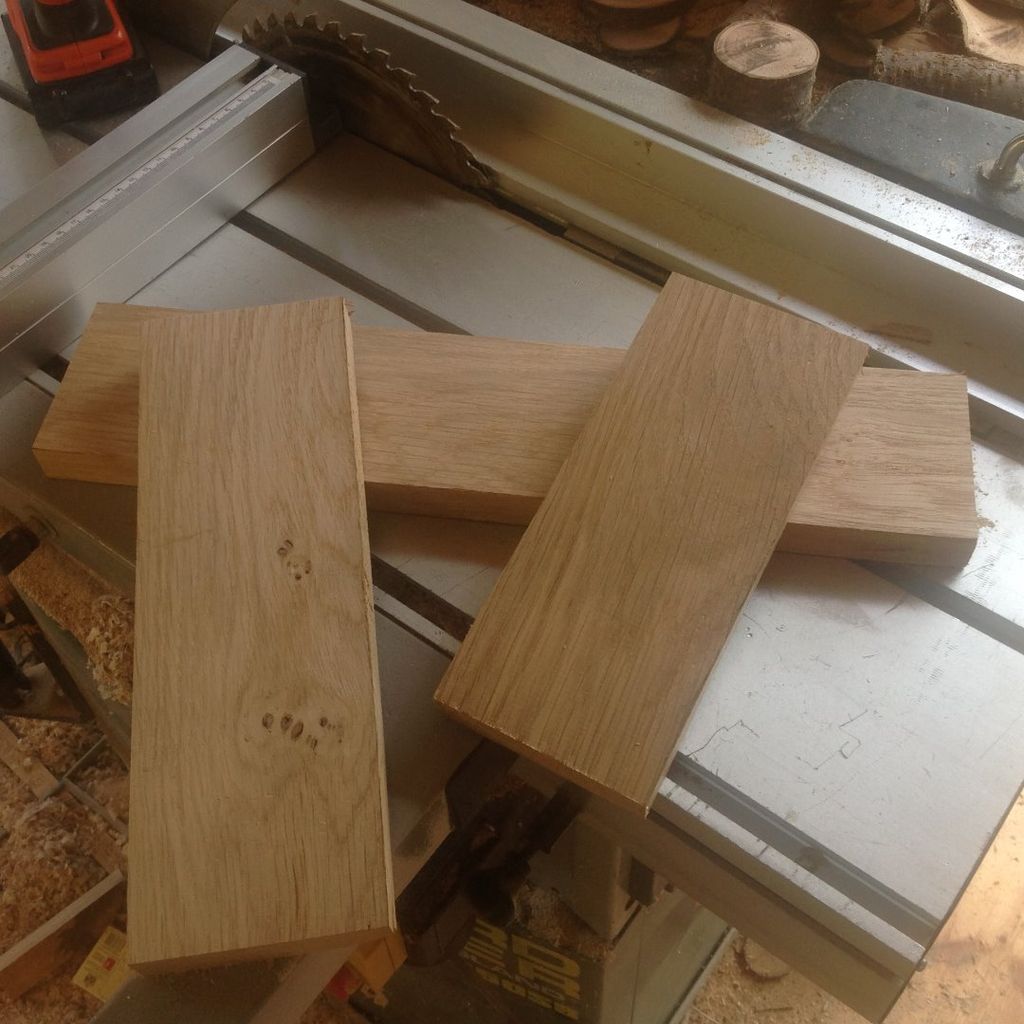

As part of the research into this project I did intensive testing of wine bottles and their contents. The benefit was that when I came to cutting the hole to retain the wine bottle I was fully aware of size variations and knew that a 90mm diameter hole would be good for most bottles.So I loaded an appropriately sized cutter into my pillar drill, clamped the wood securely to the stand and started to cut the hole. Hole cutters have a central drill bit that helps align the cutter and this means that when you have drilled down 3/4 of the distance you can flip the wood over and complete the cut. The benefit of this is that you reduce the amount of splintering or breakout that occurs on the surface.
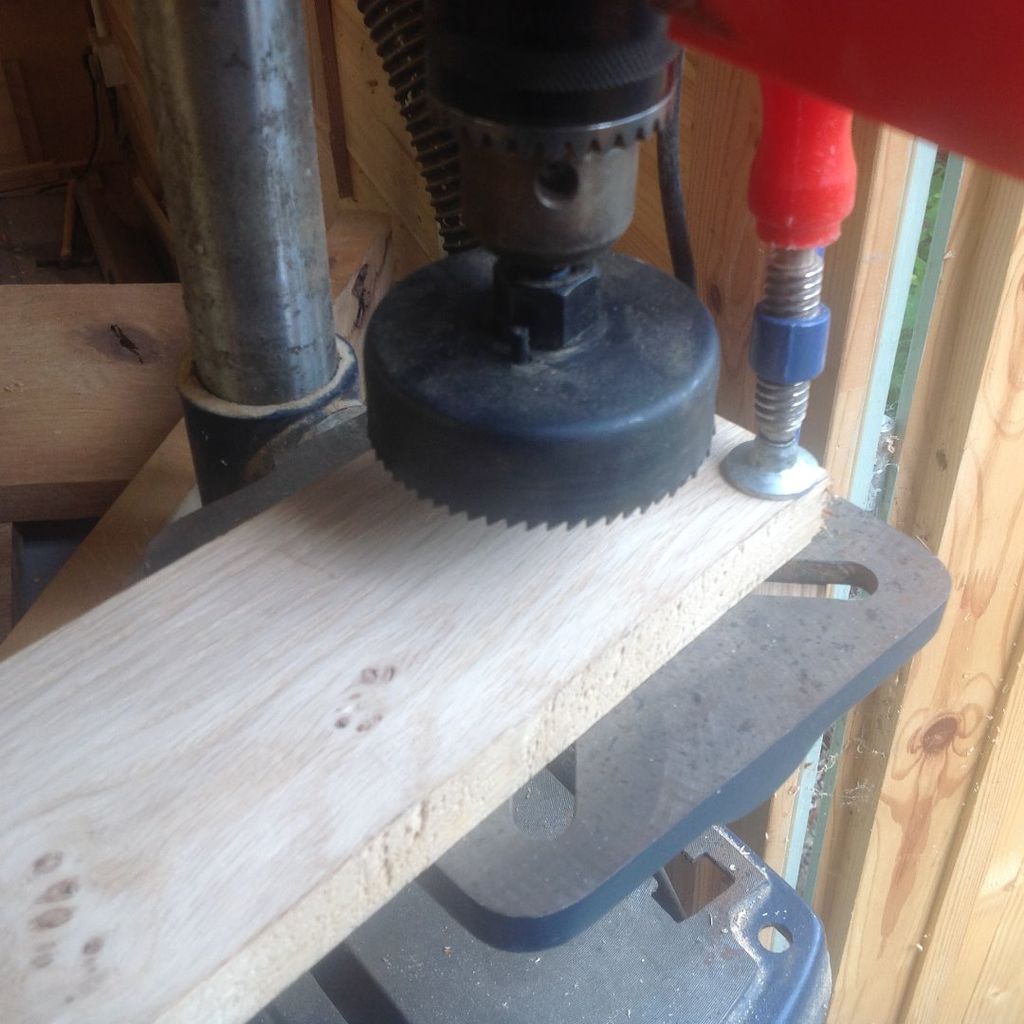
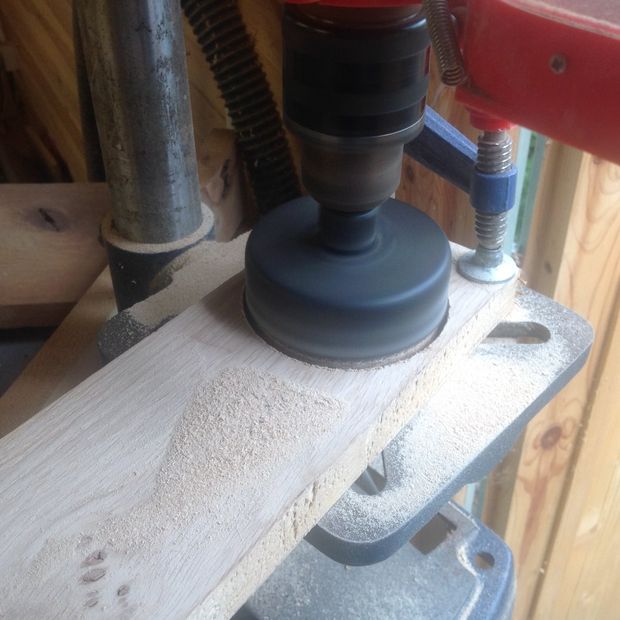
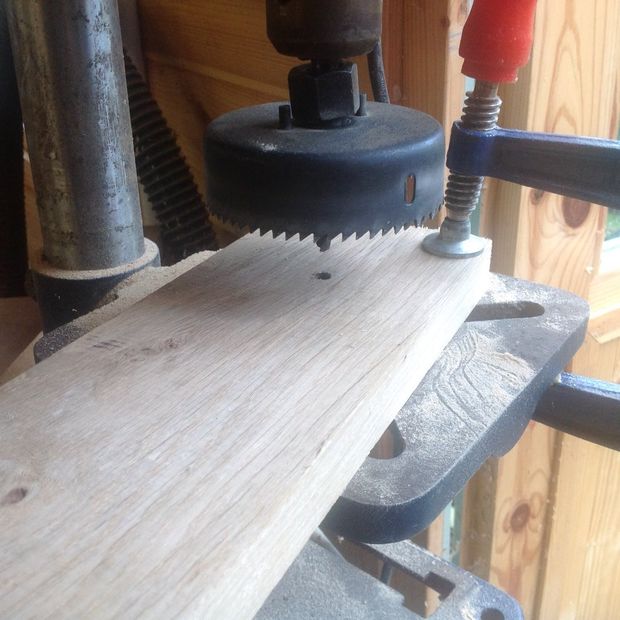
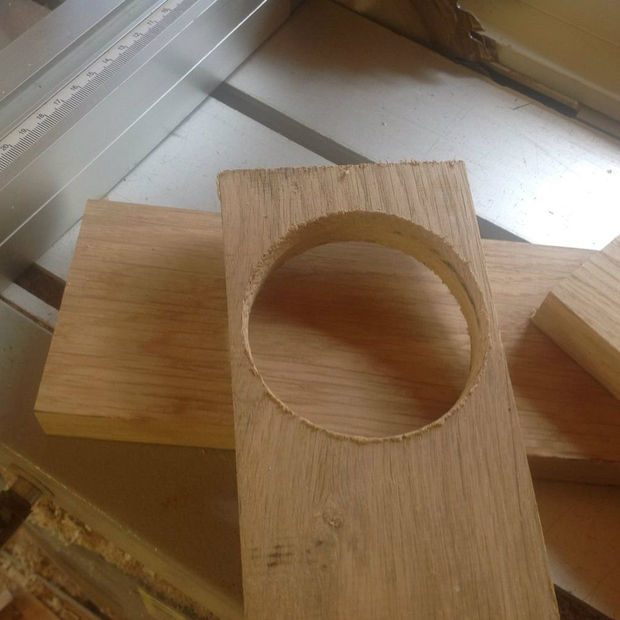




The wood I have used for this build is a 1 metre piece of oak board left over from another project. The benefit of this is that the width and thickness are going to be consistent along the whole board.This means that it is an ideal project to use half lap joints on. A half lap joint is one where you remove half the material each of the two pieces of wood that you wish to cross over.So the starting point is to get the width of the wood, halve it and add a little bit back on :-) So for my project the width of the wood was 98mm. Half of that is 49mm and I added an extra 2mm back on to ensure that when the join comes together the edges of the wood are nice and flush with each other. I will be cutting out 51mm of material in each half of the joint.To cut the joints by hand you would mark out where you want it on the wood and use a tenon saw to remove the bulk of the material before cleaning and final sizing with a sharp chisel.I am fortunate enough to have a table saw so I will be using this to make the joints because it is nice and quick. The table saw method involved adjusting the height of the blade so that is protrudes 51mm. With the mitre gauge set to cut 90 degrees to the blade, the wood is run over the blade, returned to its original position and moved along so that the next pass removes the next bit of wood. I repeat this until all but a very small slither of wood remains to be removed. I can then test to see if the wood slides over the other piece and know how much I need to remove to make a nice snug fit.Two halving joints are required on the upright and one each in the middle of the remaining two pieces.
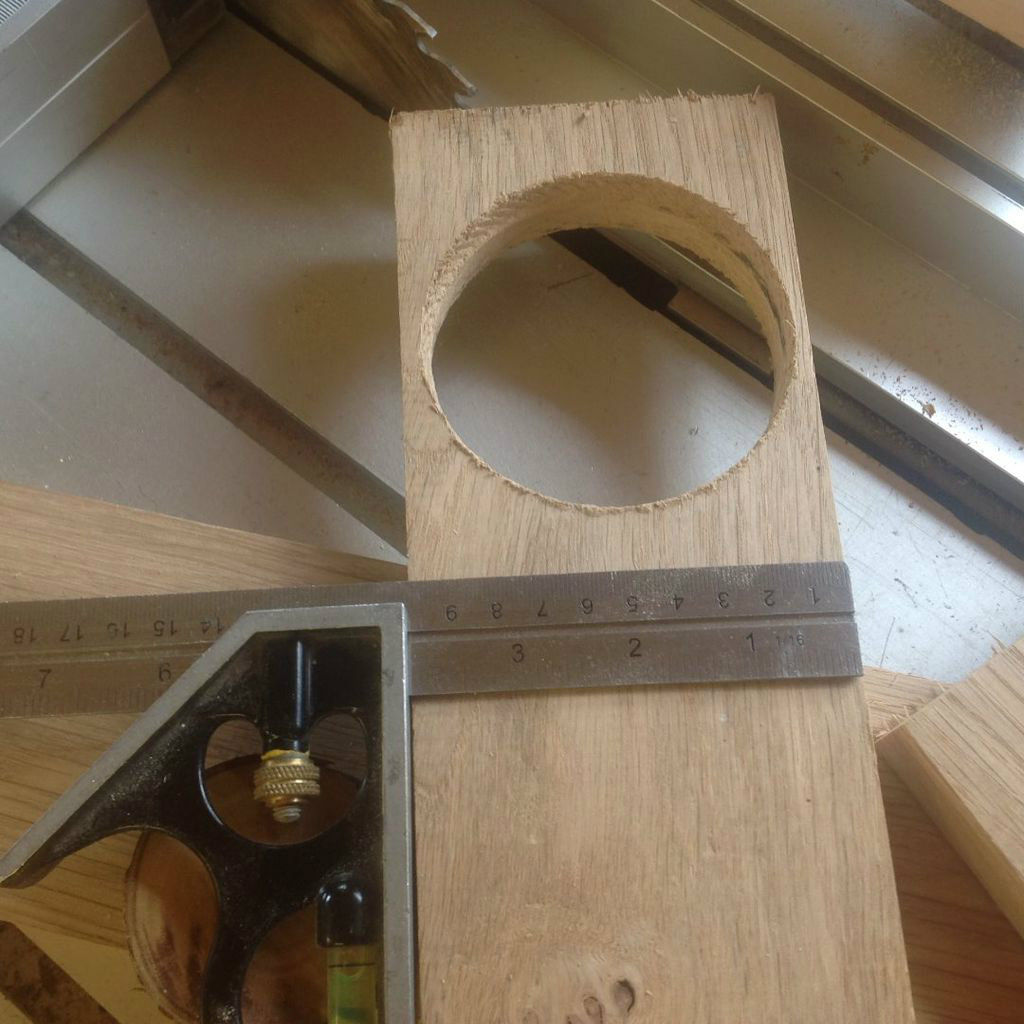
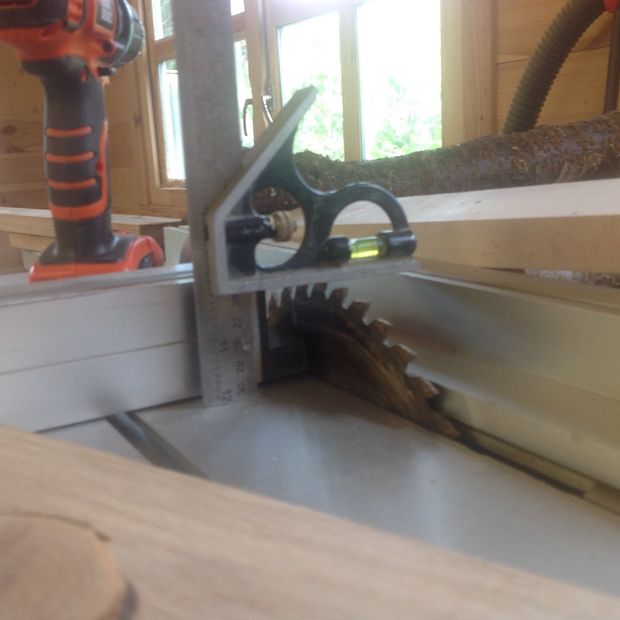
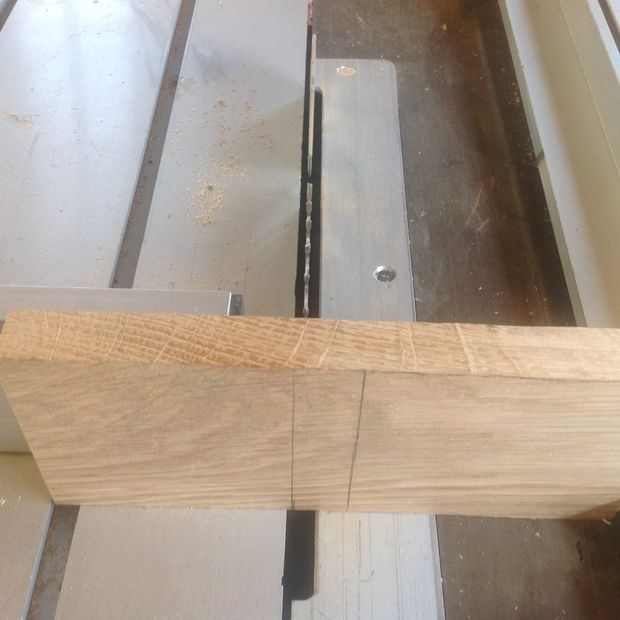
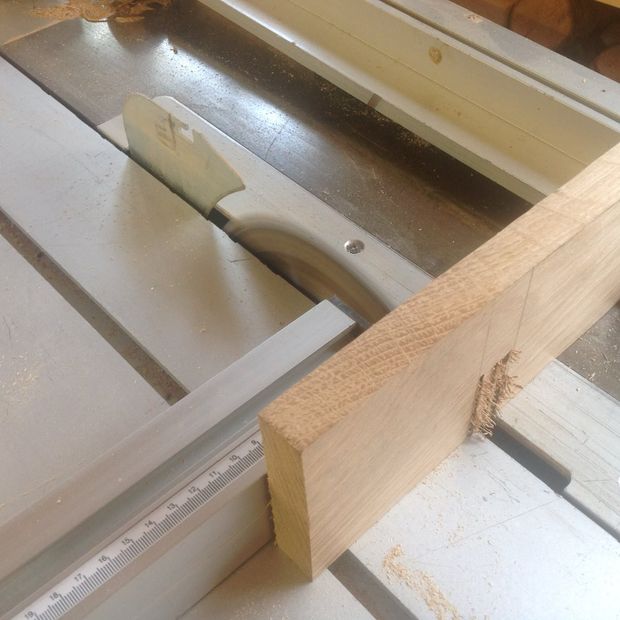
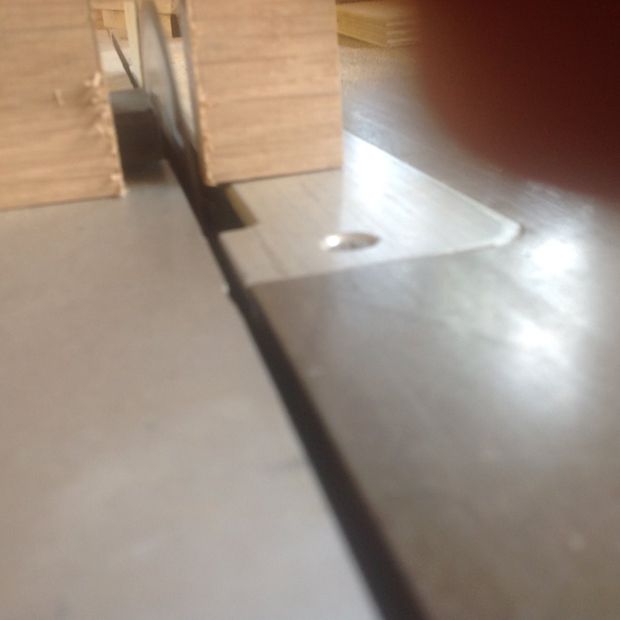
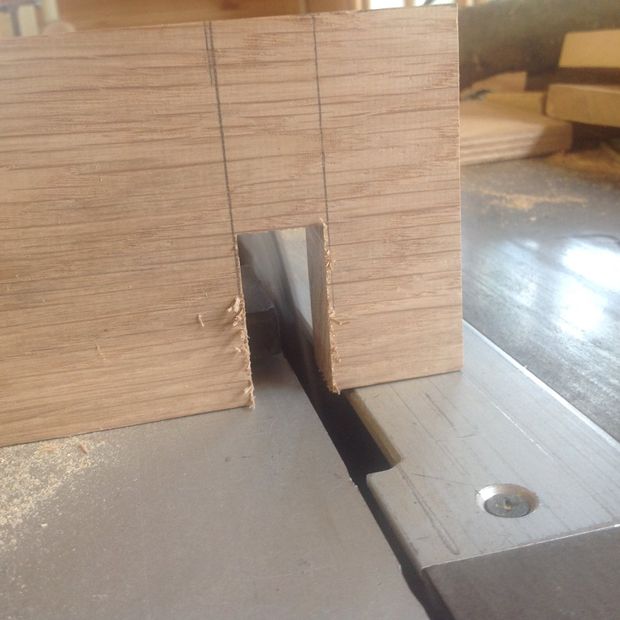






The top of the wine spike at this point has the large hole for the wine bottle and the housing joint.By replacing the wooden disc cut out previously you can work out the distance from the centre of the hole to the side of the joint. This is the distance from the other side of the joint where you will create the wine glass holder hole.So the hole cutter is replaced by a forstner bit in the pillar drill and the hole is started to be drilled out. Before you go all the way though you need to take a perpendicular line from the centre point to the side of the wood. This is where you will be making a break in the wood that the wine glass stem will pass through.When the hole is finally cut all the way through, I took the wood and run it through the table saw a couple more time to create the break.
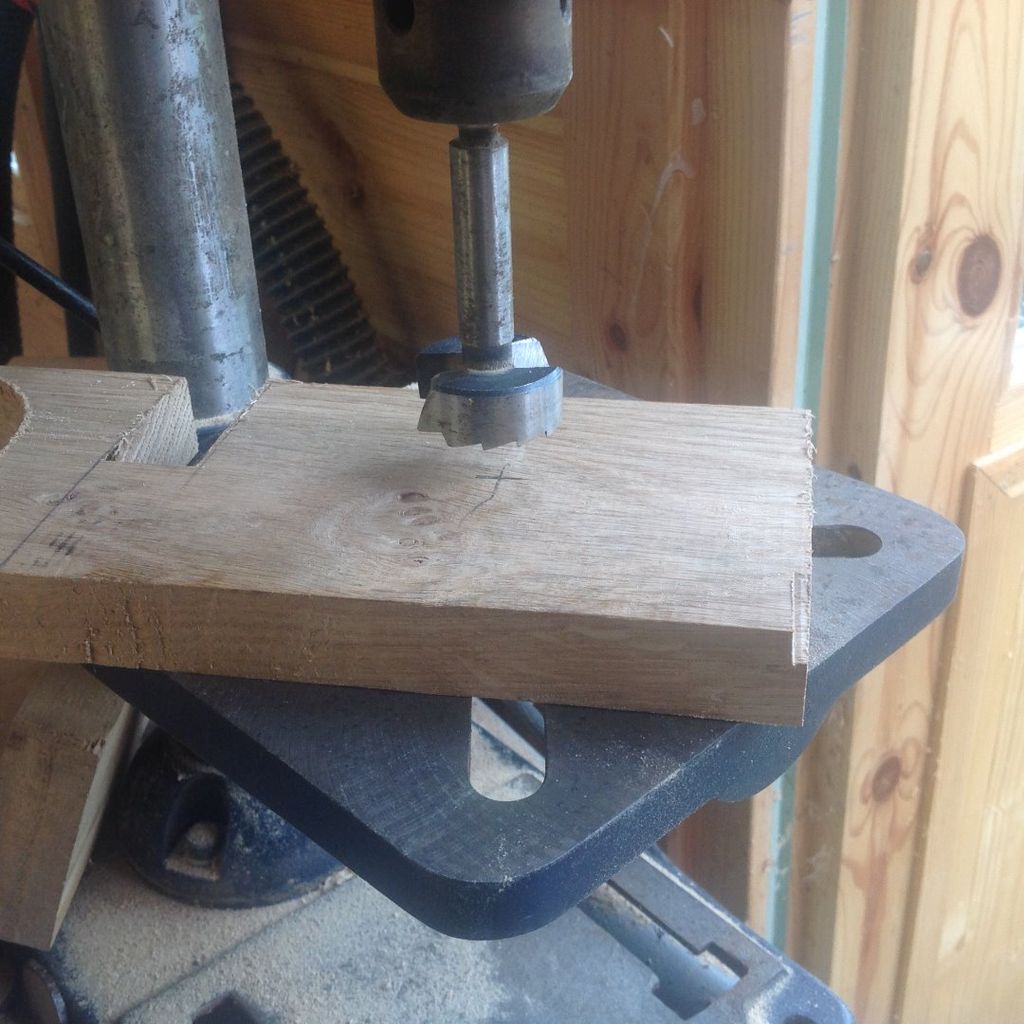
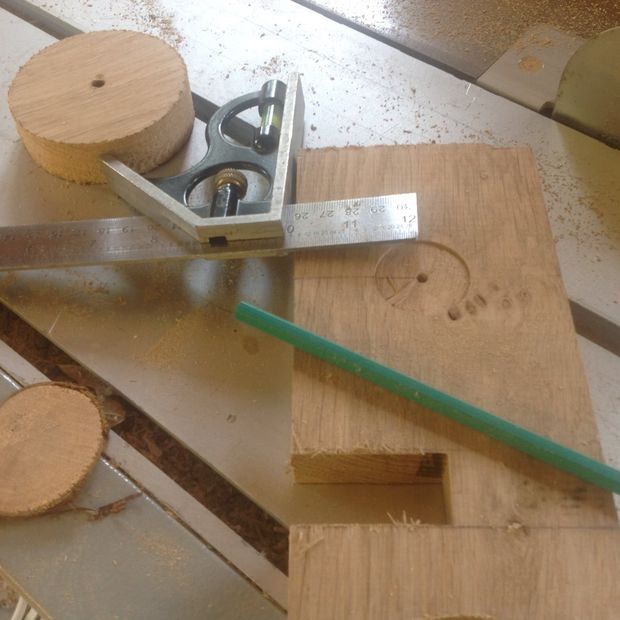
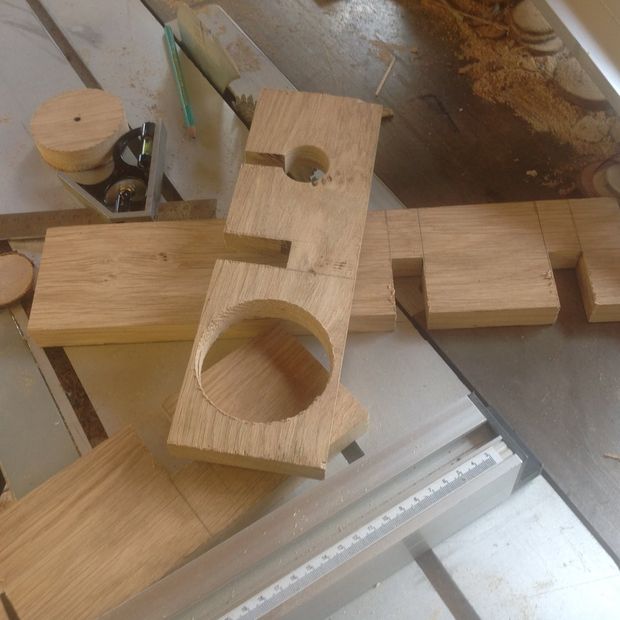



Just a couple of small finishing touches needed now; all pieces were given a light sanding and the bottom of the upright was trimmed to create a spike that will go into the ground. A bit of oil wiped over the wood and it is complete.Slot the 3 pieces together, stick it in your lawn and you are ready to go . . . . Variations of this would be :make it as a double wine glass holder with no bottle make it single sidedround over all the edges
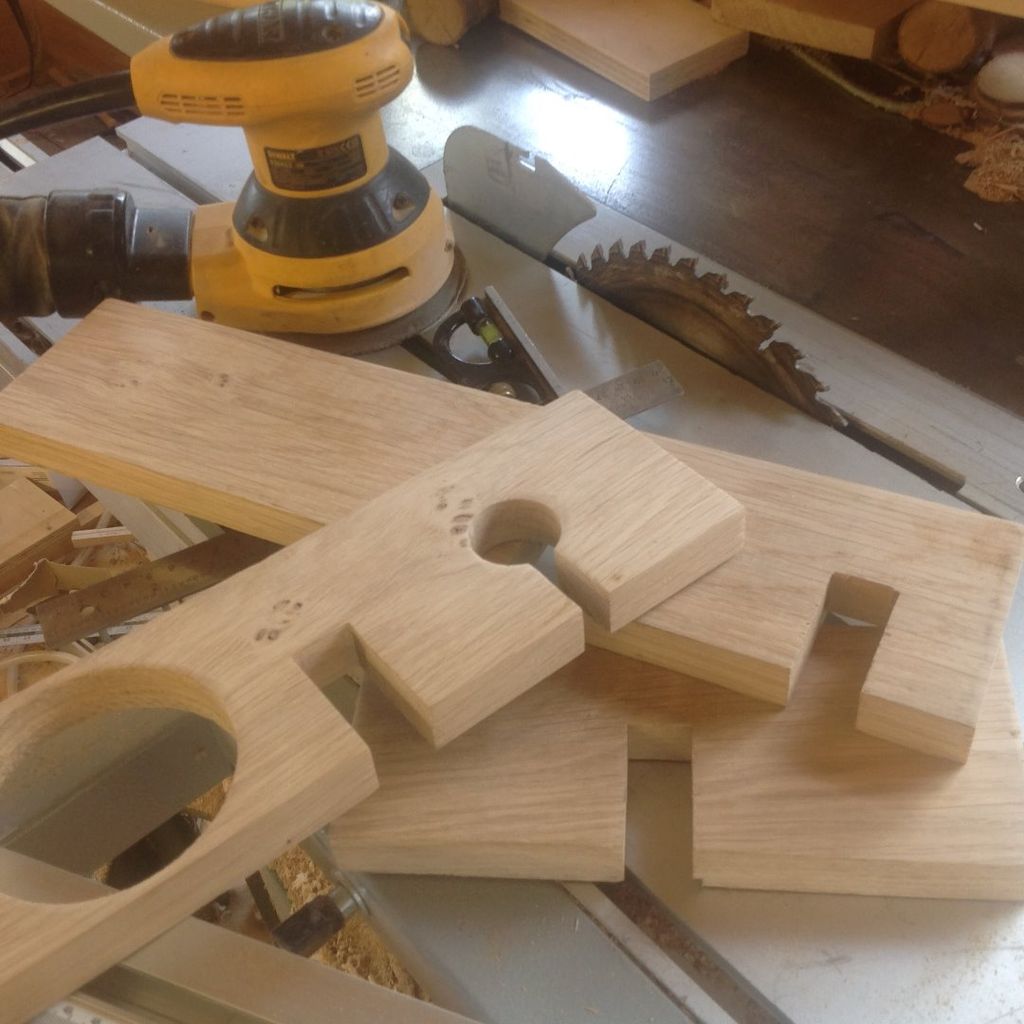
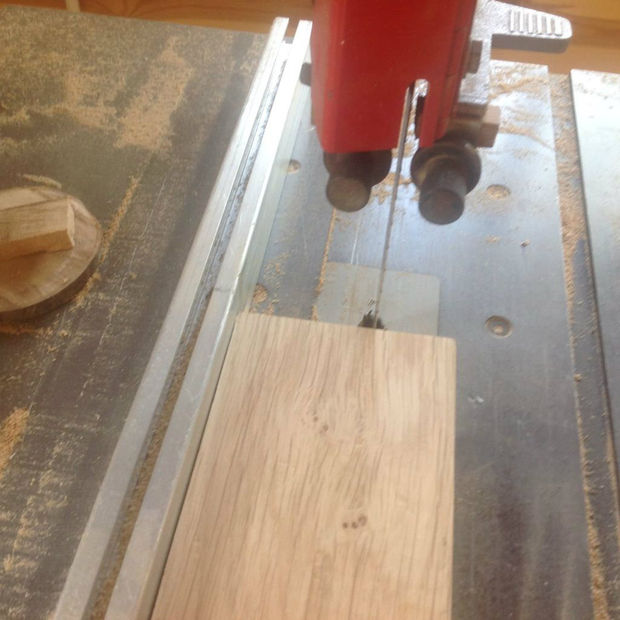
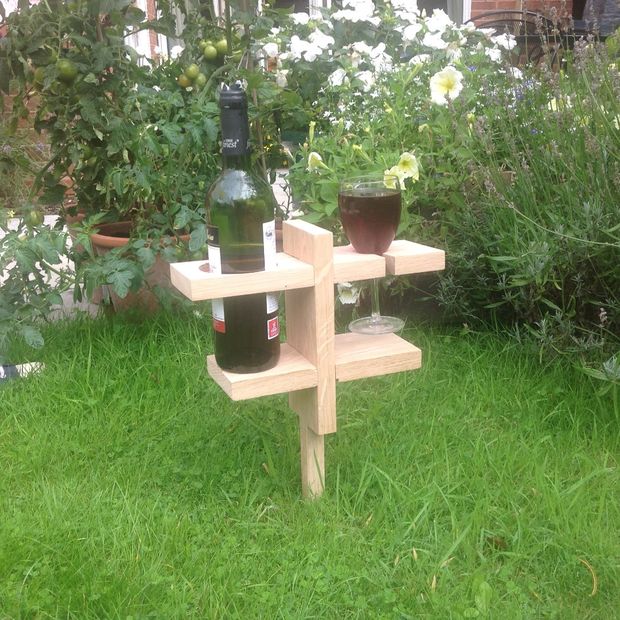



Question & Answer
Question: Choose the best title for the missing blank to correctly complete the recipe.
____________
Cutting the Joints
Wine Glass Holder
Finishing Touches
Choices:
(A) Wine Bottle Holder
(B) Grandma's Wine Dated 1939
(C) Ingredients
(D) Pot Queso Blanco
 (A) Wine Bottle Holder
(A) Wine Bottle Holder